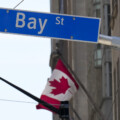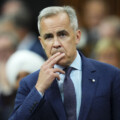Although I’m a political layman, I’m familiar enough with Canada’s parliamentary system to understand the intended dynamics of a governing party and an opposition.
In theory, opposition parties exist to challenge the government on its decisions and actions and hold it accountable for its results. Within this system of government, we should expect debates on ideas for how our government should fulfill its responsibilities with respect to its citizens. We should also expect that governments be held accountable for failure, if a valid alternative is ready to step up and govern in its place.
Debates should focus on fiscal policy, immigration, infrastructure, defence, foreign affairs etc.
But key to any debate is two sides taking opposing views on issues, and one of the challenges that seems to be occurring in Canada today is that our three major political parties sound exactly the same on many of the key issues facing Canada.
Their stated differences are primarily focused on credibility, relatability, and trust rather than substantive differences in policy.
On issues of fiscal policy—and monetary policy by extension (apologies to Mr. Trudeau for having no time to think on this one)—all three of our political parties are falling short of providing a substantive opposition to a de facto consensus of increased debt and increased spending, and increased inflation as a result.
So where does that leave the millions of Canadians who are legitimately concerned about the economic trajectory we’re on? If we’re not finding adequate opposition representing these concerns in Parliament, then maybe we look elsewhere.
Enter Bitcoin.
If you’re inclined to roll your eyes at this point, you may soon be in the minority. While only four percent of American adults over 55 years of age own cryptocurrency today, already over a third of Americans aged 35-44 own cryptocurrency (likely a similar figure in Canada), and that number is trending up.
Earlier this month, there was a great piece published in the American publication National Affairs, titled Bitcoin and the U.S. Fiscal Reckoning. The author, Avik Roy, makes a compelling case for why the U.S. should take a positive and encouraging stance towards the Bitcoin and cryptocurrency industry, arguing that it could be the fuel that drives the next wave of American economic growth.
But more interestingly, his analysis outlines how important Bitcoin will become as a system of government accountability, or a hedge against short-sighted government fiscal policy and central banks’ reactions in the way of inflationary monetary policy.
In essence, until very recently, citizens did not have much choice but to slowly be dragged into the consequences of governments who overspend, underdeliver, and have no sense of responsibility for the long-term consequences of their actions.
This reality would likely look extremely similar whether we had a Liberal, Conservative, or NDP government in Ottawa. In fact, this will likely be the reality of most developed countries in the coming decade.
More than 20 percent of American hedge funds now own Bitcoin.
That said, what most politicians and economists have failed to factor in is the decentralizing power of Bitcoin.
For the first time ever, in a period of sustained economic decline citizens will have a choice to place their trust in something other than their government. Larger and larger portions of individual and corporate assets will shift from treasury bonds to Bitcoin and other cryptocurrencies.
This is already happening today, if you’re paying attention.
More than 20 percent of American hedge funds now own Bitcoin. The millions of consumers who hold Wealthsimple and Mogo accounts in Canada can now buy and trade Bitcoin. Billions of dollars are held within our publicly traded Bitcoin funds in Canada. And this shift will only accelerate.
What Canada’s policymakers need to recognize is the incredibly rare opportunity this creates for Canada. Unlike our American cousins, our dollar is not the world’s reserve currency. We do not have to worry about decisions that might impact the global standing of the Canadian dollar to the same degree.
With a few small policy prescriptions, Canada could ensure that we disproportionately capture a competitive share of the Bitcoin market and its related innovations. This should, at minimum, include a decision to add Bitcoin to our national treasury; slowly at first, but with a view to maintain some proportion that represents Bitcoin’s standing against global fiat currencies (Bitcoin is valued at more than $1T USD).
And now back to our short-sighted overspending politicians. You should be excited about welcoming a new taxable asset class and hyper growth industry into Canada that can fund your unlimited election promises. All you need to do is get out of the way.
Recommended for You

‘Another round of trying to pull capital from Canada’: The Roundtable on Trump’s latest tariff salvo

Canada is losing ground on investment. Here’s where

Carney’s next budget will be built on a shaky fiscal foundation

‘Those deficits are almost surely going to rise’: Trevor Tombe on the fiscal challenges facing the Carney government




